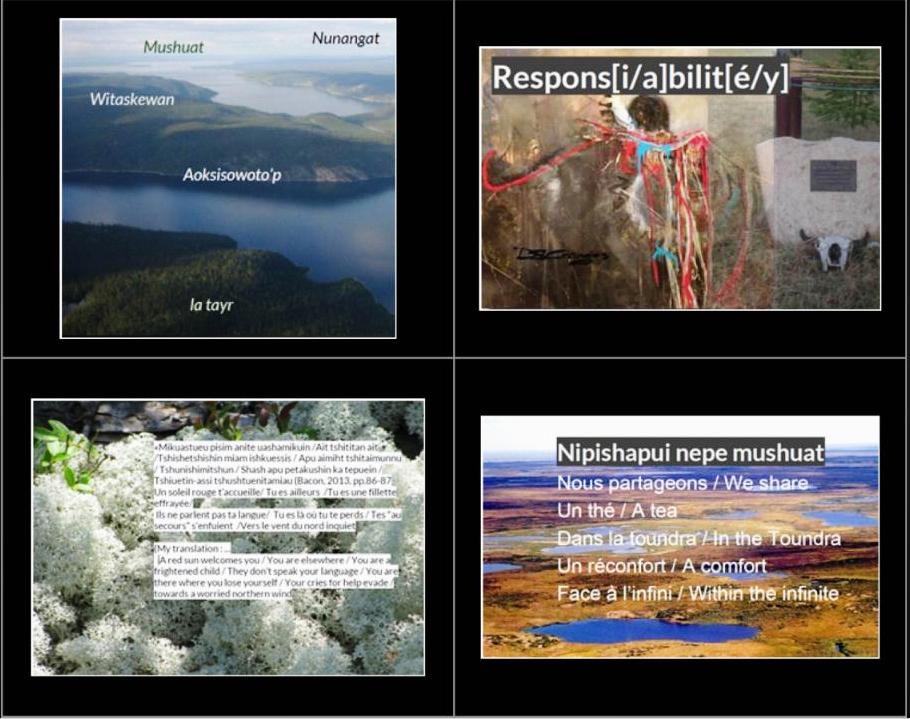Reading Silenced Narratives: A Curricular Journey into Innu Poetry and Reconciliation
DOI:
https://doi.org/10.37119/ojs2015.v21i2.223Keywords:
Postcolonialism, Indigenous Education, Educator's Role, Pedagogy,Abstract
Using a life writing research methodology in this article, I seek to understand the complexities implicated in reading silenced narratives as a way towards reconciling internations relationships. To do so, I weave in the poetical territories of Josephine Bacon, Innu poet from Pessiamit, Quebec. I analyse how a poetic text has created spaces for reinterpreting silence[s], that journey into and beyond my whispered narratives as an emerging, settler scholar and curriculum theorist. As I tune into several layers of silences, I examine the pedagogical implications lying within public and intimate territories of silenced narratives and the narrative(s) of silence(s) in our various practices as educators.
Keywords: Postcolonialism; Indigenous education; educator's role; pedagogy

Figure 1. A visual abstract is offered here as an alternative way to enter the space of silenced narratives of symbolic literacies (see Battiste, 1986).
Published
Issue
Section
License
Authors who publish with this journal agree to the following terms:- Authors retain copyright and grant the journal right of first publication with the work simultaneously licensed under a Creative Commons Attribution License that allows others to share the work with an acknowledgement of the work's authorship and initial publication in this journal.
- Authors are able to enter into separate, additional contractual arrangements for the non-exclusive distribution of the journal's published version of the work (e.g., post it to an institutional repository or publish it in a book), with an acknowledgement of its initial publication in this journal.
- Authors are permitted and encouraged to post their work online (e.g., in institutional repositories or on their website) prior to and during the submission process, as it can lead to productive exchanges, as well as earlier and greater citation of published work (See The Effect of Open Access).



